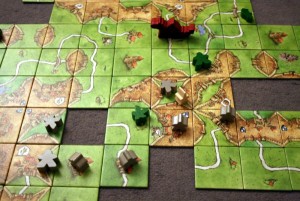I love video games. I worked as a video game designer for fifteen years and I’ve played tons of titles of various genres. It’s a fantastic entertainment medium and I will defend it as much as possible.
However, few of the games consoles in my house ever get played, although I’m a parent now. Surely that’s even more reason to use them? No. I have seen children* playing video games, and the resulting fury far outweighs any of the enjoyment. Here’s why:
- Most video games are too hard. Yes, those DS titles say ‘3+’ on the box, but that’s an indicator of the themes not the difficulty. Even video games with that rating can be brutally hard.
- Children don’t have self control. When you’re into a good game everything else ceases to matter. Children aren’t armed with the self awareness to realise how unimportant playing a game is to the enjoyment of that particular day.
- Time stands still when you’re playing. Half an hour can seem like ten minutes to a child engrossed in a good game. Video games can be brilliant time killers, which is great for adults. Not so for children.
So when the game has to stop, achieving the goal can feel ruined unfairly, which means the child can become frustrated and angry.
* Although I’m referring to my children, I’ve seen adults have the same problems when playing video games.
So what’s the solution? It’s simple:
Play board games.
My family plays a lot of board games, and the good ones are amazing family activities because:
- The difficulty gets adjusted accordingly by you, the adult.
- The rewards are huge: social interaction, being in the spotlight, making decisions.
- It’s all in the real world, so each player’s behaviour has consequences.
Apply This
And here’s how all that relates to communication: on the one hand there’s ‘disconnected’ communication: emails and tedious, conventional Powerpoint presentations, which have the negative traits of video games. On the other there’s ‘connected’ communication such as speaking to someone in person, or presentations utilising interaction, spontaneity and wit which have all the positive qualities of their respectable cousin, board games.
I like people, not projector screens. The connected presentation doesn’t rely on technology, but on social interaction and engagement, making the speaker the medium, not some projected slides. Want to engage someone? Don’t just talk to them, speak to them.
Related Posts
Games Like Presentations
Video Game Lesson: How to Do Anything Better
Forget Powerpoint!
Image: ‘ilovkingdomhearts_and_me_playing_video_games_by_shadowfear’

